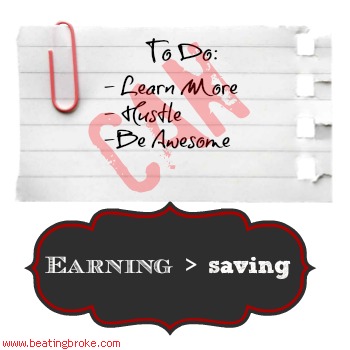Like many mailboxes around the country, mine seems to overflow on occasion with credit card offers. I’m not sure what it is, if their marketing departments all work on the same cyclical calendar, or if there are certain market indicators that trigger a flood of offers, but whatever it is, they all seem to come all at once. Normally, they all find their way to the shredder, to then find their way to the trash can.
One of the things that we still do, because we haven’t paid off all of our credit card debt, is to occasionally transfer the balances to take advantage of those same credit card offers. One of those offers recently expired, and so I had been keeping my eye out for a new offer to make the move. That offer came in the form of those little convenience checks that the credit card companies are so fond of sharing. In this particular case, from a card that we’d already paid off, but had left open. It had two checks in it. One that offered 0% interest for about 13 months, and the other that offered 1.99% for about 18 months.
Which Credit Card Offer Will Reign Supreme?
There was plenty of balance on the paid off card to take care of the entire balance of the other card. It was just a matter of writing the check to transfer the balance, and mail it. But, which one? Most people, including myself, if making the decision in a quick manner would likely choose the 0% offer and mail it off. However, it bears a little more analysis than that. Especially if, like in our case, you don’t think you’ll have the balance paid off at the end of the 13 months. When the transfer special expires, the rate bumps back up to the normal 12.24%.
I put a little thought into it, and thought that there might be some advantage to using the 1.99% rate with the longer term. But, I had to be sure. I’m no math wiz, especially when it comes to interest rates, so I went looking for a calculator that might help me figure out for sure if there was an advantage to one rate or the other. I found two that gave me the numbers I was looking for.
Credit Card Offer Calculators
The first was a calculator from my friend Todd Tresidder over at FinancialMentor. It’s a simple Credit Card Comparison calculator. I think it’s meant to compare different credit cards, but I just punched in the numbers for the different offers on the same card and hit the button. What did it tell me?
In both this calculation, and the second one, I used a few assumptions. These aren’t really true assumptions, but I had to use some baseline to determine the difference. I assumed that it would take us longer than 18 months to pay off the entire balance. I used an approximate payment. I also assumed (since the calculators didn’t allow for different payments) that we’d pay the same payment for the entire life of the credit card. Here’s what I found.
In Todd’s calculator, the difference between the two offers was about 5 payments to payoff, and about $300 in savings. Which one won? The 1.99% offer. My initial thoughts were confirmed. An interesting note; I played with the payment amount, and the more we pay as a payment, the less difference there is. In fact, there’s a tipping point, where the 0% offer is better. As I suspected, the more you pay, the sooner you’ll pay off the balance, and the more advantage you get from using the 0% rate. But, remember that I made the assumption that we wouldn’t be paying it off in less than 18 months, so that isn’t an issue in our case.
The second calculator that I used is this credit card balance transfer calculator. This calculator seemed to be set up a little more for this specific calculation. It adds in calculations for the balance transfer fee which is something that you certainly need to take into account if you are thinking of transferring a balance. With all the numbers punched in, and the calculator spinning up, my initial thought was once again confirmed. In fact, this calculator seemed to show even more advantage to going with the 1.99% rate. Here, I got an answer of about $405 in costs. Again, massaging the payment gave the same results in that the more you pay, the more advantage there might be in taking the 0% rate.
We Have A Credit Card Offer Winner!
So, all that calculated, we filled out the check for the 1.99% transfer and sent it off. But, it brought an interesting revelation to me. You’ve got to compare the offers. A difference of a few months, or a few interest rate points can make a much larger difference than you think. Compare them thoroughly, and try and make accurate assumptions about your payoff behavior so that calculators like the ones I used can give you accurate information.
Have you ever found that an offer that, at first glance didn’t seem the best, really was?



